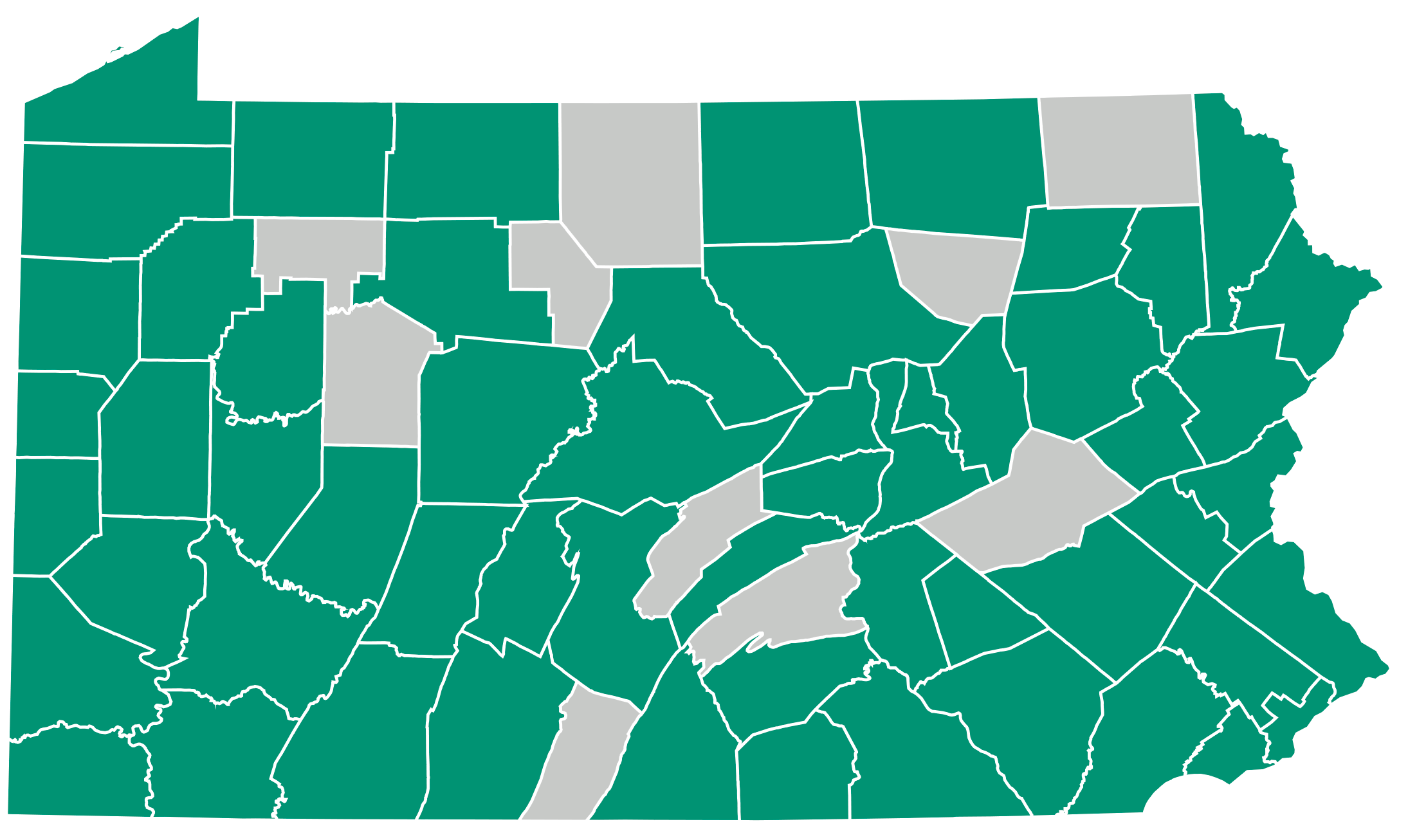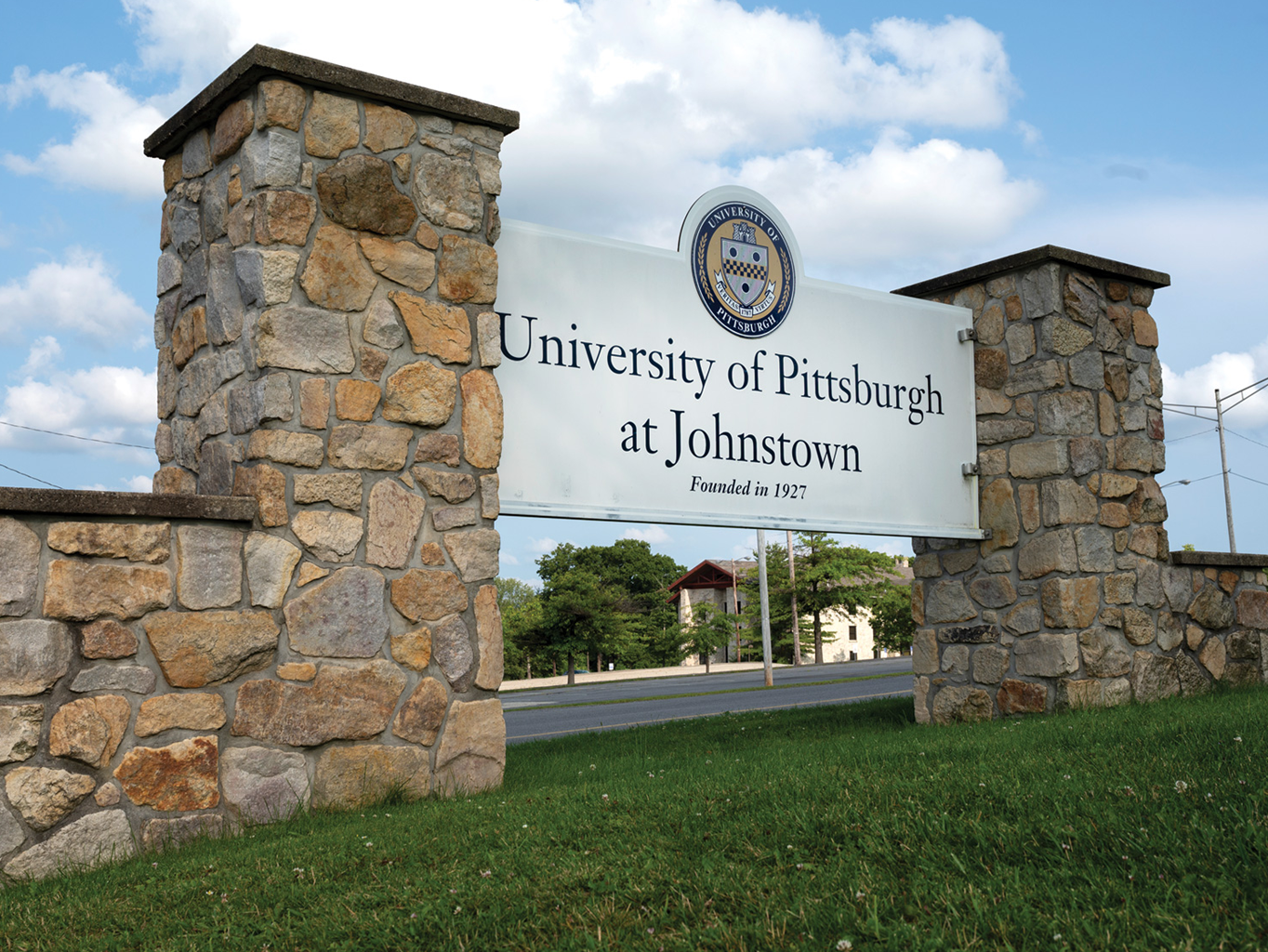
Impact in Pennsylvania

Map shows the impact of Pitt research on the state through research funding spending in counties in the state of Pennsylvania during fiscal year 2023. Vendors are located in counties highlighted in green. Spending is not uniform across counties. Allegheny is the county receiving the largest amount of Pitt research funding dollars.
Source: Research Spending and Vendors for FY 2023. Office of the Chief Financial Officer
Pitt spent research funding in 85% of the state’s counties in FY2023
Lending a Hand to the Region’s Small Business Owners
In fiscal year 2023, Pitt’s Institute for Entrepreneurial Excellence (IEE) continued to support entrepreneurs and small business owners, providing assistance to more than 1,400 businesses in southwestern Pennsylvania, and helping launch nearly 60 new businesses.
The IEE and its Small Business Development Center (SBDC) held several specialized events to connect underrepresented-, women-, and veteran-owned businesses to regional contracting opportunities, and hosted more than 70 events for small business leaders, from start-up education to advanced topics. IEE’s Entrepreneurial Fellows Class, which provides CEOs, founders, and the next generation of family business leaders training to enhance their knowledge and expertise in managing and growing their businesses, also graduated more than 30 participants in December 2022. Additionally, its Urban & Community Entrepreneurship Program had nearly 30 underrepresented small business owners complete its six-month training program.
In recognition of IEE’s mission to provide small business owners and entrepreneurs with the education and tools necessary to thrive, SBDC was honored as the Export-Import Bank of the United States Regional Export Promotion Program Member of the Year.
Jem Spectar
Pitt-Johnstown: Research in Motion
The University of Pittsburgh at Johnstown sits on a rural campus high above the Conemaugh Valley 70 miles east of Pittsburgh; the campus is a hub of research uniquely entwined with its community.
The multidisciplinary field of medical communications thrived during the COVID-19 pandemic when the school became the center of efforts promoting public health measures. Professor of Biology Jill Henning collaborated with medical communication researcher Susan Wieczorek, associate professor of communication, to take a critical public role in translating the new science emerging from COVID research into public health actions. Henning became the area’s go-to media source, writing a column in the Johnstown Tribune Democrat and hosting regular public meetings.
“Henning took her research to the community in a way I’ve never seen,” says Jem Spectar, president of Pitt-Johnstown. “She found a way to make the science accessible to people who may not have taken precautions or the vaccine, and those people did not feel alienated or talked down to. Without question, the work she did saved lives.
“The faculty are excellent teacher-scholars, committed to scholarly engagement, research, and publication,” Spectar says.
Chemistry and chemical engineering are standouts, with an emphasis on the “green chemistry” movement and projects turning biomass into fuel. The school is one of a handful in the state certified by the green chemistry advocacy group, Beyond Benign. Other researchers are focusing on topics such as the sustainability of the local environment and reclaiming brownfield sites in the former industrial and mining region.
“Our community is our lab,” Spectar says. “Our research engages with the quality of life here. We are facing the human condition and trying to make it better. Pitt-Johnstown is research in motion and application.”
Jill Henning






